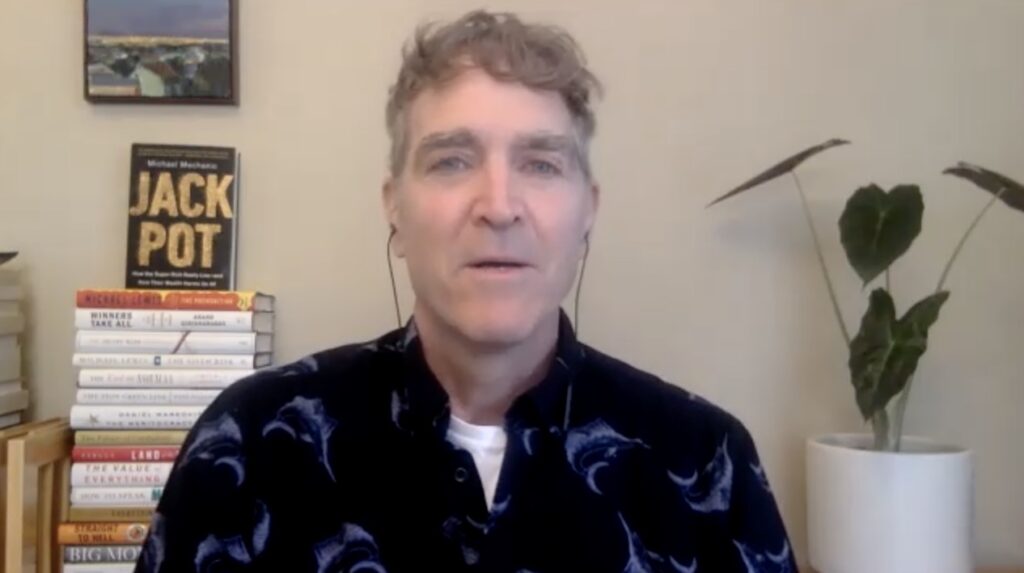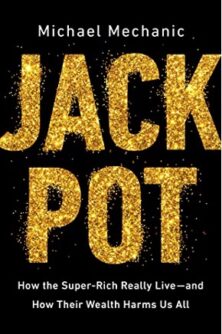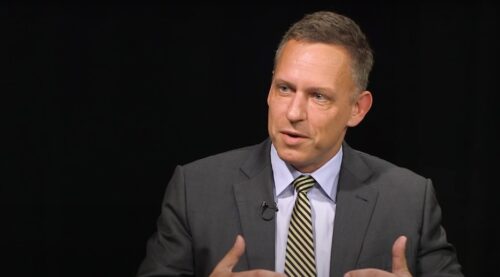The Mother Jones senior editor talks to Michael E. Hartmann about the state of journalism, including about philanthropy, and his new book on the super-rich, including their problems.
Mother Jones senior editor Michael Mechanic’s new book Jackpot: How the Super-Rich Really Live—and How Their Wealth Harms Us All, as we noted in a review, has a little Lifestyles of the Rich and Famous to it and is an engagingly humorous look at life for those with a lot more money than most of us. At the same time, often with empathy, Mechanic in Jackpot well-surveys a very wide range of unforeseen and complicated challenges that come with the opportunities afforded by wealth.
Mechanic came to Mother Jones 13 years ago after being managing editor of the East Bay Express, an alternative weekly in San Francisco Bay Area.
In Jackpot, his first book, he also offers his insights into how the super-rich’s wealth does much harm, to both those who have it and the rest of us. He covers more “stakeholders”—many of whom, he argues, are hurt by—than just stockholders who are helped by capitalism, for example.
Mechanic critiques the U.S. Supreme Court’s Citizens United decision in particular, too, and “the kinds of policies that produced this mess in the first place” in general, including what he considers wealth-protecting and -perpetuating tax policies. He includes pointed chapters on “Thriving While Black” and “Women on Top.”
Another strong chapter of Jackpot, “Giving It Away,” really got our Giving Review attention. “[T]he way philanthropy is practiced in our country not only favors the rich, it can actually exacerbate the estrangement between rich America and poor America,” according to Mechanic.
He refers to “the Big Philanthropy juggernaut,” which is made up of unaccountable, taxpayer-subsidized, private charitable foundations that are “beholden to nobody” and “can amass unlimited assets and exist in perpetuity.” He writes that “Big Philanthropy remains profoundly undemocratic, yet the public and our elected leaders rarely complain anymore.”
Mechanic was kind enough to speak with me last week. The 15-and-a-half-minute video below is the first of two parts of our discussion; the second is here. In the first part, we talk about the state of journalism, including about philanthropy, and his new book on the super-rich, including their problems.
Mechanic and Hartmann
Asked about the state of philanthropy journalism, “[t]here has been insider, industry stuff for a long time,” Mechanic tells me, “but as far as mainstream, popular authors and publications really looking into this world, there hasn’t been a whole lot of that.” Citing recent books by Anand Giridharadas, Rob Reich, and David Callahan, however, Mechanic continues, “I think there’s been a renaissance of this kind of stuff.
“Now, my book covers a wide range of things,” each of which are worth book-length treatments in and of themselves, he notes. “In a way, it’s a kind of survey of this world ….”
As for what wealth can and does do to people, “the super-wealthy have the same problems we do,” according to Mechanic. “It’s just, in a way, they’re amplified and certain aspects of them are really amplified. … We all have family tensions,” for instance, “but when you drop $50 million in there, it can really make them a lot bigger and you can have a major squabbles over money and major sibling rivalries.”
In the conversation’s second part, Mechanic talks about the need for more and better thinking about the proper role of philanthropy in a democracy and people’s fear about being on the wrong side of America’s economic divide.







